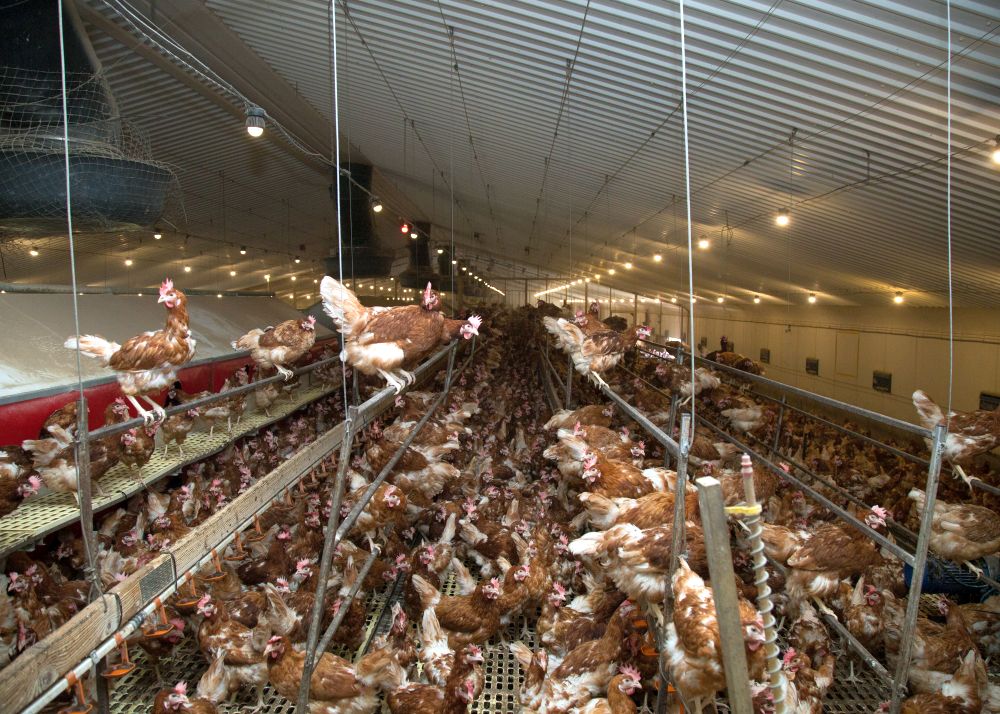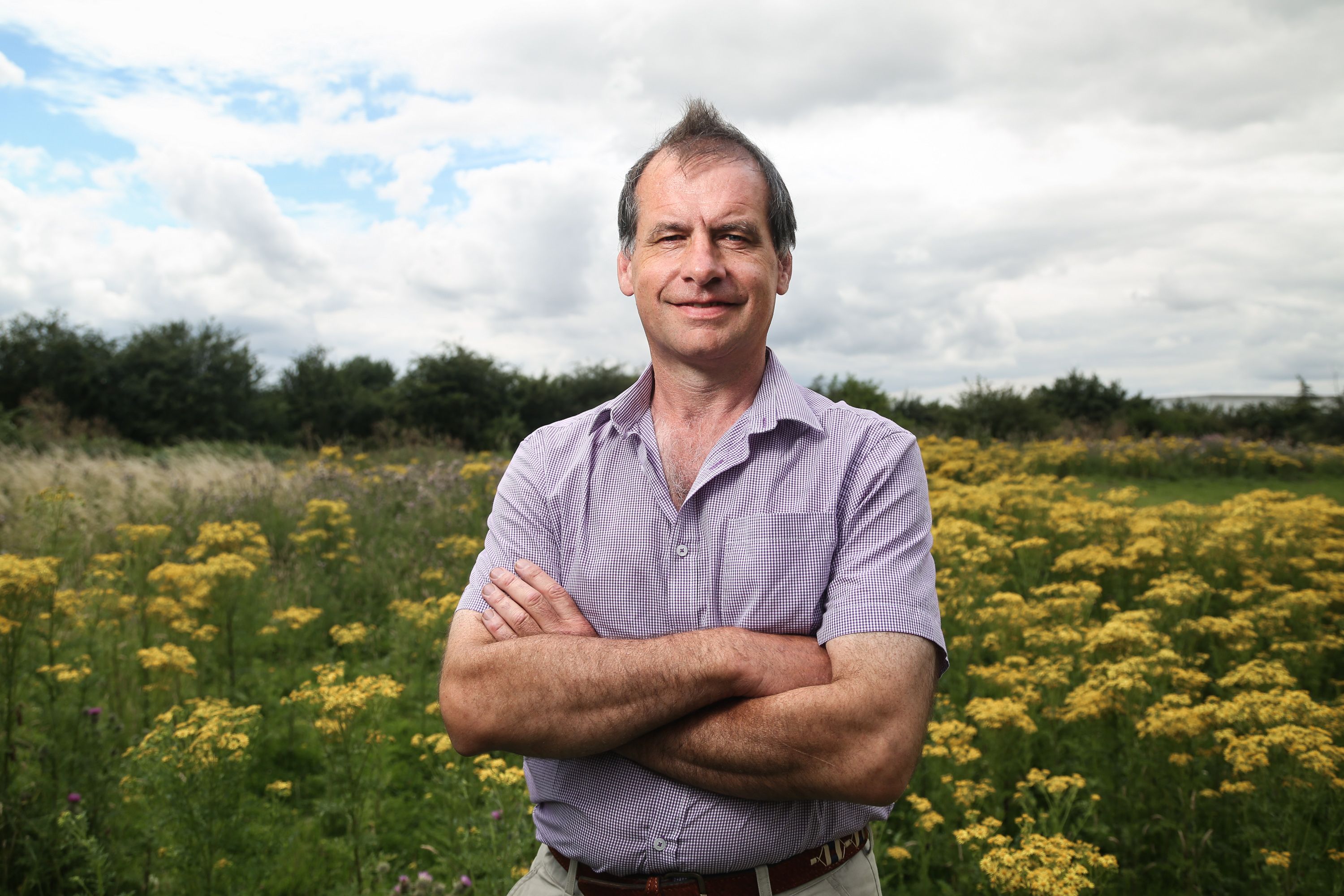Egg producers may quit assurance scheme over plans to enforce aerial perches

Free range egg producers may quit a farm assurance scheme following its decision to press ahead with controversial plans to enforce the use of aerial perches.
A former chairman of the British Free Range Egg Producers Association (BFREPA) has said he will probably withdraw from the RSPCA's farm assurance scheme 'Freedom Food' over the issue.
They say they are concerned about both the difficulty and cost of installing aerial perching in existing sheds.
They are also worried about animal welfare, with evidence suggesting that aerial perching increases the risk of keel bone injuries.
Processing statistics show that keel bone injuries are as much as 40 per cent higher in units with aerial perches.
And a leading scientist, who has conducted research into keel bone damage, says that aerial perching increases both the incidence and the severity of keel bone injuries in birds.
"I haven't seen any evidence to suggest that it improves welfare," said Professor John Tarlton of Bristol University, who said he was worried that Freedom Food was pressing ahead with plans to enforce the installation of aerial perches.
'It's a worry'
Professor Tarlton works at the university's School of Veterinary Sciences, which has established a reputation as a leading research centre for the layer industry.
One study in which he was involved, which was published in 2011, looked into the impact of housing systems and designs on bone strength and keel bone fractures in birds.
The research team reported in its published findings: "In flocks from free range houses fitted with either rows of suspended perches above the slatted area or perches incorporated into extended A-frames, the prevalence of broken keels was higher, and the severity of fractures worse, than in systems that provided no dedicated raised perches."
Professor Tarlton said research indicated that aerial perches could increase the risk of keel bone damage towards 90 per cent at end of lay.
"If they want go ahead with this, it needs to be evidence led and I am not sure that it is evidence led at the moment," said the professor. "It's a worry."

Packing station evidence of keel bone damage in end-of-lay hens shows injuries running at 17.6 per cent in conventional single tier units. In single tier units with aerial perches, the figure is 24.6 per cent - an increase of 39.8 per cent.
'Left with no choice'
Roger Gent, who farms in Berkshire, is a former chairman of BFREPA who is also worried about keel bone damage.
"When I was chairman, Freedom Food said they were concerned about keel bone damage. Now they are saying we have to have aerial perching. What will be the effect of that on keel bone damage," said Roger, who told FarmingUK he would now probably pull out of Freedom Food following the decision to press ahead.
"I want to know what's behind it. Where is the research to prove the benefits to welfare greater than the damage caused to the birds," said Mr Gent.
"I used to have a lot of respect for Freedom Food but I will be putting in one more crop before the deadline and then that will be it. I am left with no choice." He said he did not see how he would be able to retro-fit aerial perching in his sheds.
'Improve animal welfare'
Freedom Food is changing its rules to require producers with traditional flat deck units to install eight centimetres of aerial perching by August 2018.
Freedom Food told FarmingUK that the intention was to improve animal welfare.
"We are confident that providing properly designed raised perches in the right positions in the hen house will help to deliver significant improvements to hen welfare," said a spokeswoman for Freedom Food in a prepared statement.
"Hens have a strong natural instinct to perch. Providing raised perches can reduce stress, fear and birds pecking each other, as well as improving body condition.
"Our standards are devised to be stretching but achievable, and while we understand they may be challenging for some farmers to apply, the phase-in period we allow for application of the new standards should help with this.
"Any change to an RSPCA standard is undertaken following consideration of a range of available evidence, including the latest scientific research, expert opinion and practical experience, and involves consultation with a range of stakeholders including the veterinary profession, welfare researchers, farmers and industry groups."
Hen welfare is primary concern
The spokeswoman quoted research suggesting that the design and placement of perches was important in helping to reduce the risk of injury.
However, Professor Tarlton said research at Bristol indicated that fitting aerial perches increased keel bone injuries in laying birds.
The 2011 study showed that the most benign unit for keel bone damage was an organic mobile system. Examination at end of lay showed that prevalence of old keel bone breaks was 45 per cent.
Robert Gooch, chief executive of BFREPA, said the association disagreed with Freedom Food's proposal: “We are opposed to this requirement on a number of levels, with hen welfare being our primary concern.
“The evidence we have seen from Bristol University shows that fitting large amounts of aerial perching can lead to an increase in keel bone damage to hens. It’s a welfare concern that we would expect any organisation – particularly the RSPCA – to recognise.
“At a practical level this will also cause huge difficulties for those retro-fitting perches to sheds that weren’t designed for them and are likely to hamper daily management procedures.”
He said that BFREPA had agreed to fund research into the issue but Freedom Food had decided it wanted to press ahead irrespective of this offer.
“One of three things will happen with producers. Some may leave Freedom Food and carry on as they are. Some producers will decide it is time to go and will get out of the industry. Some older producers may be on the edge of packing up and this will probably be the final straw. Some may invest in a multi-tier system instead. It shows you what a mess the RSPCA has made in dealing with what is a very important part of the industry.”








